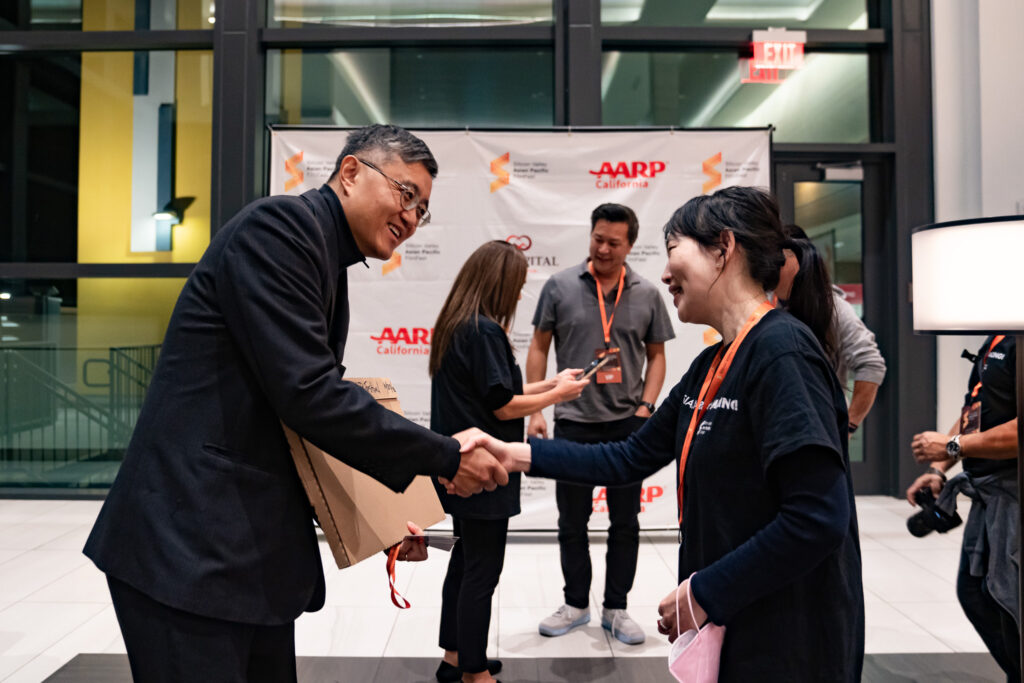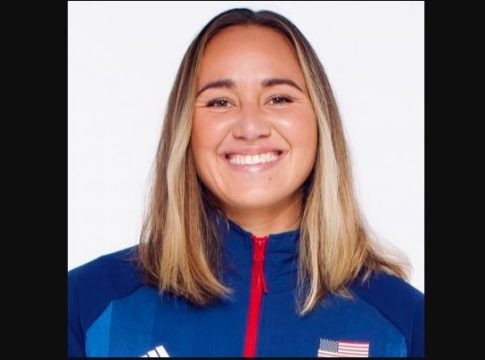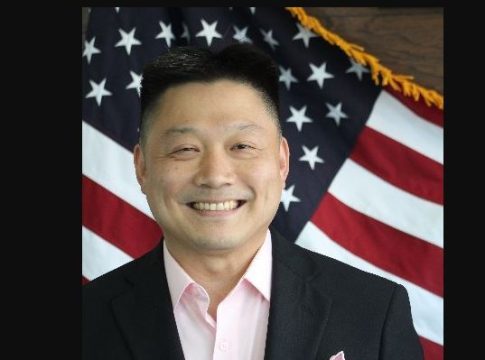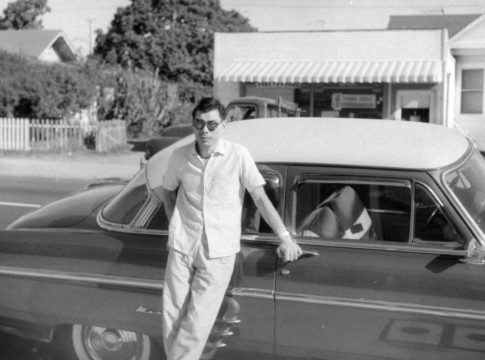By Jia H. Jung, California Local News Fellow
Numerous AANHPI relevant film festivals have been born in North America in past years, and this weekend is proof. The 21st annual 3rd i San Francisco International Film Festival, 15th Boston Asian American Film Festival, and 12th International Film Festival of South Asia in Toronto, the largest South Asian film festival in the Americas, are all happening concurrently – whether opening or closing – this weekend.
There is also a theatrical release this weekend in Los Angeles of Last Summer of Nathan Lee, about a teenager who receives a terminal brain cancer diagnosis and makes haste to avoid dying as a virgin. The showings, at the Laemmle Theater, feature Q&A conversations with the filmmakers.
The youngest of all the film festivals going on right now is the ninth annual Silicon Valley Asian Pacific FilmFest (SVAPFF), previously known as the San Jose J-Town FilmFest, kicking off its in-person and online program this weekend.
SVAPFF is a brainchild of the Contemporary Asian Theater Scene (CATS) organization founded 20 years ago to support, mentor and elevate Asian American artists and cultural performers of the South Bay. Run by a diverse team of community volunteers, the film festival showcases independent films created primarily by Asian American, Native Hawaiian and Pacific Islander filmmakers.
LATEST STORIES
The excitement during the opening reception on Friday night at AMC Dine-in Sunnyvale was contagious. Guests picked up bento box dinners from smiling volunteers and perused tables of festival programs and merchandise. Jilly Bing, maker of the first Asian “Jilly Doll,” had a table previewing and pre-selling its products.
Abigail Hing Wen, author of 2020 New York Times bestseller Loveboat, Taipei, also had a table. She was signing her books and pre-selling her third book of the Loveboat series before the screening of the film adaptation of the first book commenced.
Inside theater 8, NBC’s Robert Handa took the stage to acknowledge elected officials in attendance and leaders of the festival. A field representative presented a proclamation commending the festival on behalf of assemblymembers Gail Pellerin and Evan Low to Cindy Toy, SVAPFF chair. Santa Clara County Supervisor Otto Lee also presented a commendation to the SVAPFF organizers.
CATS then presented its Image Hero award to Duane Kubo, one of the founders of Visual Communications, filmmaker and pioneering Asian and Pacific Arts center and media group founded in 1970. Accepting the rocklike award trophy, he pointed out that an exhibition in the theater lobby of photos from Japanese internment camps had been made by him and his arts community in the 1960s. He also spoke about how things have changed for the visibility of AANHPI creators, mentioning that the Los Angeles Asian Pacific Film Festival already had 700 submissions for next year’s event.

The first screening after recognitions and the award presentation was short film Gifts Are My Love Language, a slice of life about young woman who keeps demanding exorbitant material gifts from her boyfriend. Afterward, Handa, joking that he had just seen a horror film, led a conversation with writer and director Jonathan de Guzman II.
The feature Love in Taipei played afterward. The dreamy adaptation of Wen’s book stars Ross Butler, Ashley Liao and Nico Hiraga, and details the adventures and romances of young Ohioan Ever Wong (Liao) when she attends a summer cultural program in Taiwan nicknamed the “loveboat.”
In a conversation with Handa after the credits rolled, Wen spoke about how she had always intended to create jobs for young AANHPI actors and crew when she was producing the film version of her book. She also shared what it was like to film overseas during the pandemic lockdown as well as see many different iterations of her characters getting played out in collaboration with the talent working on the project.
She also expressed gratitude that the AANHPI community helped boost views of the film on Paramount Plus despite the fact that all of the actors were still on strike and unable to promote the film’s release.
“We have so much power in our community that if we harness it, there is so much we can do,” she said.
The Oct. 21 program is a big day starting early at 10 a.m. with a feature and short flick in tandem. Jerry Starring Himself is a full-length film based on a true story about the movie producer’s father Jerry. Jerry is a retired, divorced Taiwanese immigrant living in Orlando when he gets an urgent call from the Chinese police, who inform him that he’s the prime suspect in an international money laundering investigation because of money moved through his Florida bank account.
Film short Year of the Rat follows, showing a slice of life of Chinese immigrant Joy Xu as she uses online dating to redefine herself, with a Q&A with the film’s director Ricky Qi.
Also on view is A Great Divide, with a Q&A featuring filmmaker Jean Shim. The film, which had its world premiere at the Bentonville Film Festival in Arkansas this summer, stars Ken Jeong in a departure from the comedy roles that vaulted him into celebrity. The narrative follows a family that moves from the Bay Area of California to rural Wyoming after suffering loss.
Bay Area Shorts later in the day celebrate a variety of AANHPI narratives told in nine separate works by local filmmakers.
Chindia begins at 5:30 p.m. with a rollicking tale of mishaps when a Chinese American and Indian American couple married for reasons other than love confronts their “Chindian” parents. A Q&A with director Sikandar Sidhu follows.
The closing film of the day is Shortcomings, at 8 p.m., based on a graphic novel by the same name by Adrian Tominie. The film, directed by Randall Park, follows Ben, a struggling filmmaker who lives in Berkeley, California, with his girlfriend, Miko. When Miko moves to New York for an internship, he is left on his own to think about what he really wants in life.
A panel of three AANHPI film industry professionals follows, moderated by Stephanie Yang, former Hollywood studio publicist who is now founder and senior communications consultant at Yang Communications, a tech PR consultancy. The panel includes award-winning Filipino American playwright Jeffrey Lo, Eric Toda, head of an API community support program at Meta, and Yvonne Kwon, associate professor of and program coordinator for Asian American Studies at San Jose State University.
The Oct. 22 program on Sunday begins with retrospective content about the Japanese American experience in Little Tokyo, Los Angeles. Hito Hata: Raise the Banner (1980) has the distinction of being the first feature-length film made by and about Asian Pacific Americans. Directed by Robert A. Nakamura and Duane Kubo, the film weaves together the stories an immigrant named Oda, an issei first generation Japanese American, and an elderly single laborer all coping with the threat of redevelopment in their neighborhood.
1970s: The Fight For Little Tokyo, is a short film compiling activist footage shot by Duane Kubo and Visual Communication during redevelopment conflict and union organizing in L.A.’s Little Tokyo during the 1970s. Kubo will be present for a Q&A after the screenings.
From 1:30 p.m. to 3:30 p.m., five short documentaries made by local legends will take the screen, focusing on people devoted to the taiko Japanese drum, closing a family mochi rice cake shop, collecting and restoring Samurai armor, and using art for healing and cultural restoration. Drawn From Life: The Creative Legacy of Flo Oy Wong, pays tribute to the Oakland-born sixth daughter of Chinese immigrants who rose up from prescribed invisibility as an artist and poet.
The closing film of the entire festival will be a 35-minute long documentary Every Day After, which recently won Best Documentary Short at the San Jose International Short Film Festival last weekend.
The film follows Jary, a young boy who grows up in the Masbate in the Philippines being shunned for his cleft lip and palate condition. His older sister Jessa protects him and houses him when he is a young teen until she can help him find the medical care he needs, and see him through the physical and emotional recovery thereafter.
The night will end with a fireside chat with Dave Liu, a 30-year veteran of Wall Street, Silicon Valley, and Hollywood who made the film, and multiple Emmy award winning NBC Bay Area news anchor Janelle Wang.
Those who cannot make it to Silicon Valley for the programming will be able to choose from a lineup of online screenings of full-length features, shorts, and documentaries available through Oct. 29.
AsAmNews is published by the non-profit, Asian American Media Inc. Follow us on Facebook, X, Instagram, TikTok and YouTube. Please consider making a tax-deductible donation to support our efforts to produce diverse content about the AAPI communities. We are supported in part by funding provided by the State of California, administered by the California State Library in partnership with the California Department of Social Services and the California Commission on Asian and Pacific Islander American Affairs as part of the Stop the Hate program. To report a hate incident or hate crime and get support, go to CA vs Hate.







